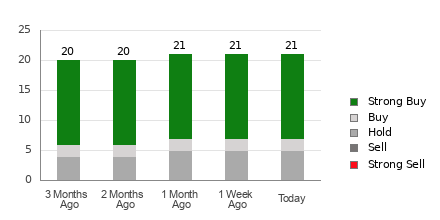At times, the need for a loan can knock on your door uninvited. With today’s interest rates, borrowing from your own retirement funds may seem appealing compared to a personal loan.
Although, if you’ve got your retirement cushion set up in an IRA, borrowing against your balance isn’t really an option. Some 401(k) plans, on the other hand, do allow individuals to take out a loan against their balances.
Now, you might lean towards the idea of borrowing from your 401(k). But, consider this – a 401(k) loan could have monumental repercussions.

Image source: Getty Images.
Beware the Pitfalls of a 401(k) Loan
Statistics from Bank of America indicated that during the fourth quarter of 2023, 2.3% of participants in 401(k) plans borrowed against their savings, with an average loan amount of $8,210.
Now, while the idea of borrowing against your 401(k) may seem shrewd – paying yourself back instead of lining someone else’s pockets with interest, there’s a catch or two with 401(k) loans.
First off, failing to repay your loan on time could turn it into a full-fledged withdrawal. As a result, if you’re not 59 1/2 years old, you could be hit with a whopping 10% early-withdrawal penalty. And if you don’t manage to pay off your 401(k) loan on time, you’re not only looking at a penalty, but also a potentially serious dent in your retirement income.
For example, suppose you borrow $8,210 from your 401(k) at age 30 and fail to hit the repayment mark. Assuming your 401(k) averages an annual 8% return and you retire at age 67, you could end up short by over $141,500 in retirement income, thanks to missed investment gains.
While having $8,210 less in retirement may not seem so bad, missing out on $141,500 is far more precarious.
Reserve 401(k) Loans for Last Resorts
If, after exploring all other borrowing avenues, you are left with no choice but to resort to a 401(k) loan, then so be it. However, it’s best to steer clear of this route due to its potential negative repercussions.
Remember, if you get turned down for a regular loan but are in need of funds, consider working a side gig temporarily or arranging a loan with a family member if possible. While not feasible for everyone, it’s worth checking out if it’s an option for you.
If you do opt for a 401(k) loan, scrutinize the terms meticulously. Pay attention to the implications if you suddenly leave your job, be it due to resignation or a layoff. In such a scenario, your 401(k) loan repayment window could shrink significantly, so it’s crucial to be fully aware of the risks when borrowing from your workplace retirement plan.
The $22,924 Social Security bonus most retirees completely overlook
If you’re like most Americans, you’re a few years (or more) behind on your retirement savings. But a handful of little-known “Social Security secrets” could help ensure a boost in your retirement income. For example: one easy trick could pay you as much as $22,924 more… each year! Once you learn how to maximize your Social Security benefits, we think you could retire confidently with the peace of mind we’re all after. Simply click here to discover how to learn more about these strategies.
View the “Social Security secrets”
Bank of America is an advertising partner of The Ascent, a Motley Fool company. Maurie Backman has positions in Bank of America. The Motley Fool has positions in and recommends Bank of America. The Motley Fool has a disclosure policy.
The views and opinions expressed herein are the views and opinions of the author and do not necessarily reflect those of Nasdaq, Inc.









